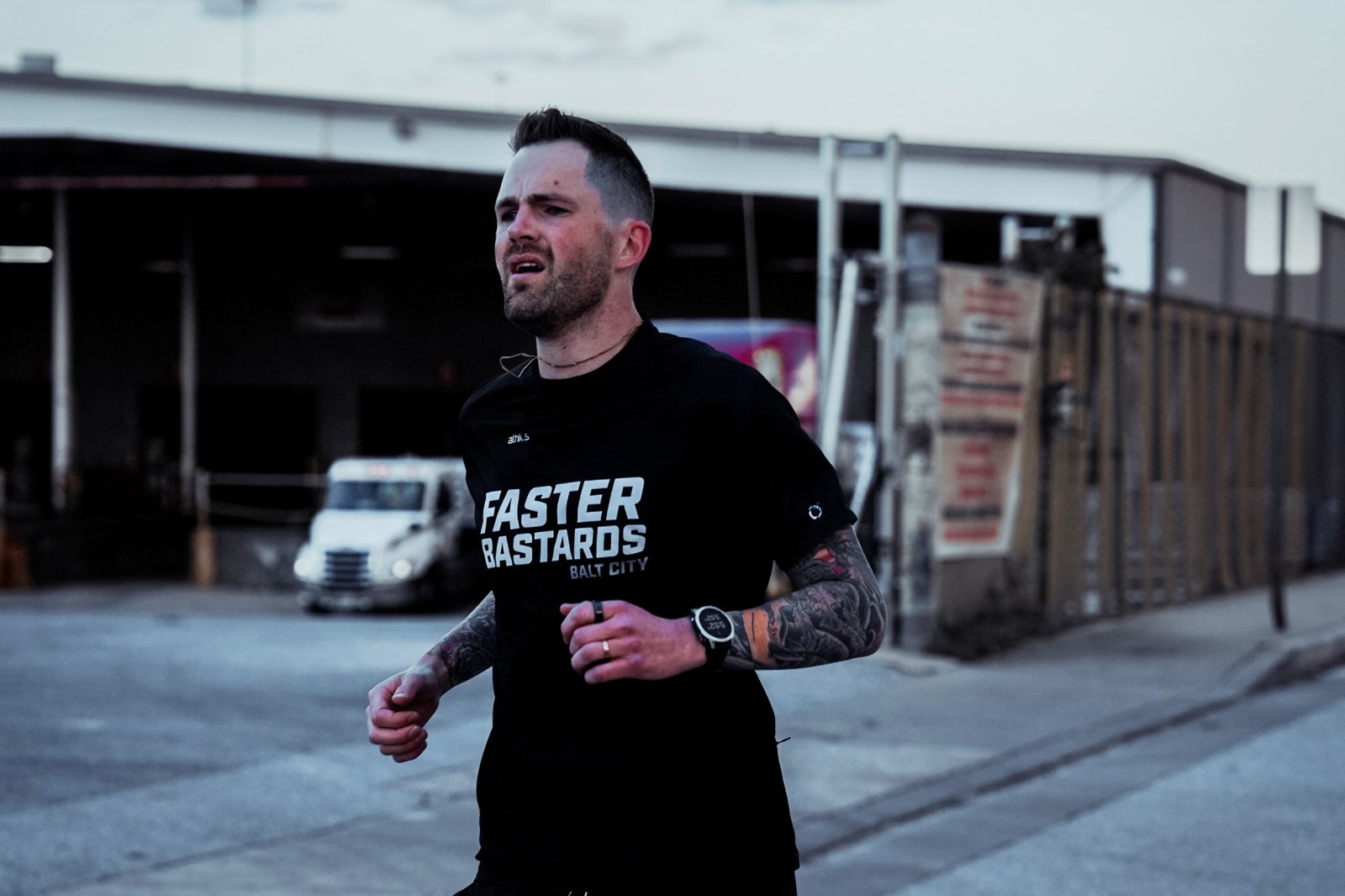
It may not be as bad as you think
Sometimes, you actually do have to stop running
Dr. Annie Neurohr, Running and Biomotion Specialist at Sinai Hospital in Baltimore, Md.
NOTE: This article is for informational purposes only and does not constitute medical advice. Consult your physician before beginning any treatment.
We’ve all been there: that moment when you’re out on a glorious day, the sun is shining, and training is going beautifully. You’re in your groove, ticking away at your mileage, and then out of nowhere: pain.
Maybe it’s in your shin, your hip, your knee, or some place you never realized could even hurt. Like any runner worth their salt, you immediately rest and recover. Just kidding, you totally ignore it and tell yourself it’s not real.
First things first, you switch on your David Goggins audiobook for inspiration. You tell yourself it’s mental. Of course it’s mental– pain is in the brain!
But what if it’s also in the bone? Is that a bone or a muscle? Do I even have bones there?
Five minutes later: I think it’s feeling better. Five minutes more: It’s definitely getting worse.
You start to panic. Your heart is racing but your splits are slowing. You may even have to… walk?! Send me to a nursing home, it’s all over.
Your Strava will suffer. You’ll lose all your kudos. You don’t deserve kudos!
You mentally draft an email to the race director of your goal marathon on how you’ll have to defer to next year. Maybe two years.
Welcome to the dark side of running. And welcome to my office.
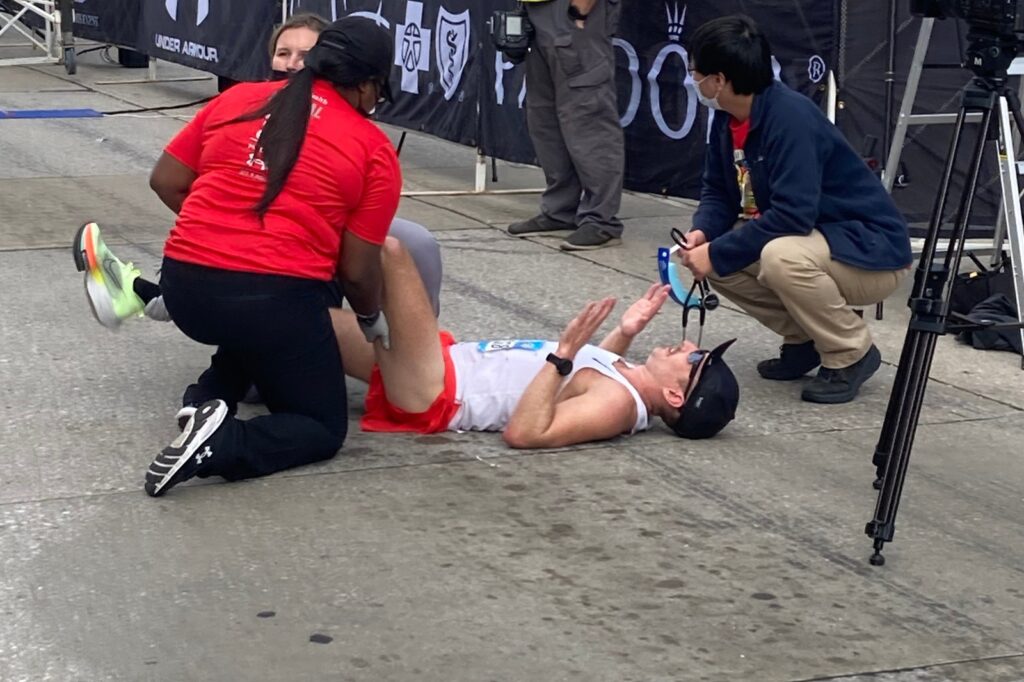
When those finish line cramps hit
Ninety-three percent of my job is reassuring runners that they are going to be okay, that they will, in fact, run again. Ask the editor who’s working on this paragraph right now: he had one foot off the “never gonna run again” cliff before I brought him back to sanity.
But hey, that’s what I do: I help them navigate when it’s okay to push through pain and when it’s time to respect it.
Same goes for you. I may not meet with you next week in my office here in Baltimore, but maybe I can help you determine whether you need to see someone in your own area, or whether you are fighting fake windmills in your own mind.
The first step is better understanding what exactly you’re feeling.
Below are three questions to ask yourself as you navigate your own pain cave.
⌁ Generalized, Dull, or Achy
These types of descriptors typically relate to muscular or tendon type pain. What you’re feeling simply could be delayed onset muscle soreness (aka “DOMS”) related to a harder effort you’ve done previously in the week and will resolve in a few days. If related to tendon pain, it will likely stick around longer but won’t respond to total rest. Proceed with caution and monitor pain traits for the next 24-48 hours. Consider reducing the intensity of your workouts for the next week or two but don’t completely rest.
Muscular and tendon pain are often the result of reduced loading capacity, meaning these systems aren’t keeping up with the repetition requirements of distance running. Adding in 2 days of strength training targeted at the lower body including exercises like calf raises, single leg squats, deadlifts, lunge variations, etc. can build muscular and tendon resiliency, reducing your risk of injury.
⌁ Sharp, Stabbing, or Pinpointed
These types of descriptors are typically more worrisome and can be indicative of a stress injury or fracture or a tissue that is in an acutely inflamed state, otherwise known as an “itis” (i.e. tendonitis). None of these scenarios should be pushed. Do not pass go, do not collect any money except the deductible you’ll be giving your physical therapist as soon as they can get you into their office. Once there, they will help you determine next steps and if imaging is necessary.
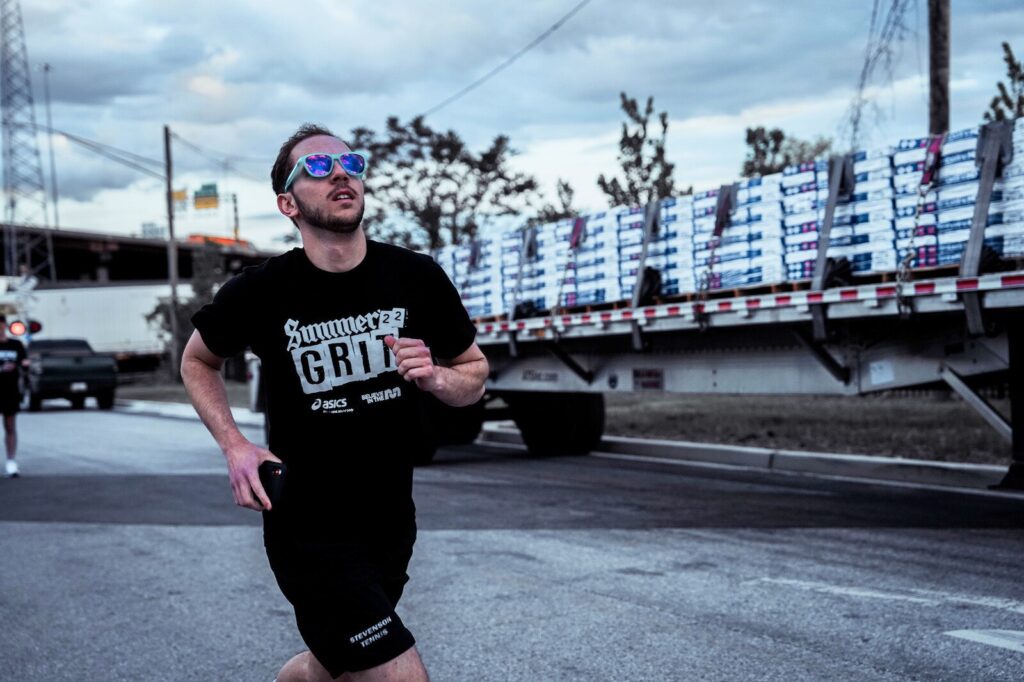
⌁ “It starts a little stiff, but actually, running feels good! It’s after I’ve stopped that it hurts the most.”
Pain that improves with warming up and worsens with periods of post run inactivity or next day soreness is typically related to tendinopathies (non-acute tendon pain), stress syndromes (i.e. shin splints), mild arthritis, or muscular strains. Increasing blood flow to these areas can have an analgesic, or pain-relieving, effect, however, stiffness typically returns in a few hours.
Proceed with caution. Consider strength training. Did I say that already?
⌁ “Worse. I can’t run through this.”
Seek medical assistance. Pain that doesn’t get better as you warm up and instead intensifies requires further investigation. You could try a rest period of 1-2 weeks if you’re leery of medical providers but regardless, you should not push through this type of pain. If it comes right back after a few weeks off, you really need to see someone.
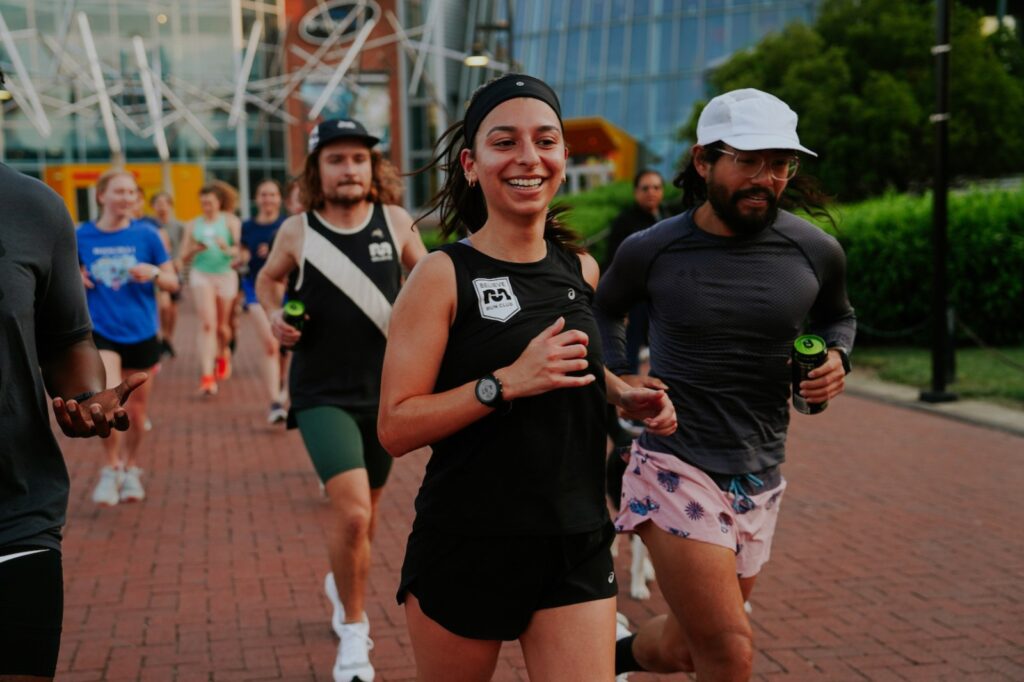
Believe it or not, you’ll be fine
⌁ “Nope, just running and it seems to get better as I keep going.”
You’re going to be okay. But maybe try that strength training stuff. Trust me, it works.
⌁ “Nope, just running but it’s not getting any better. And I’m losing my mind!”
Seek medical attention. The longer you wait, the longer it takes. When an injury becomes chronic, the recovery takes more time. I know that runners absolutely hate taking more than one day off. But better a week now then three months down the road. Don’t be afraid to get things checked out even if it’s not impacting your daily life.
⌁ “Yes, even just walking around, it doesn’t go away.”
Seriously, seek medical attention. It’s time.
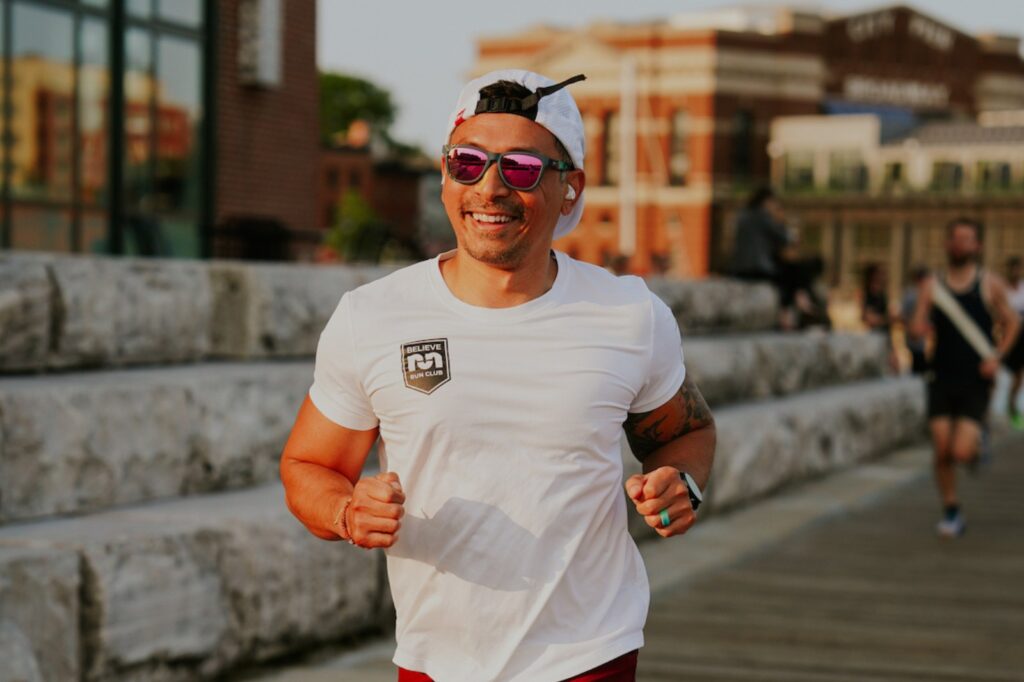
It’s important to note that pain can be a tricky beast. It doesn’t always follow these characteristics, but hopefully this is a good start. There are trends, not absolutes, in general pain presentations. As a runner myself, I know that navigating pain can be scary, but it is normal, both in running and in life.
Knowing the differences in pain characteristics can give you peace of mind and empower you to make the right decisions on how to move forward. Part of that right decision is seeking out medical assistance without fear of being told you’ll have to stop running. The vast majority of running injuries can be rehabbed while still running.
The key is working alongside a provider that understands your goals and can help you navigate the best way to reach them. Having a therapist who understands running and the runner’s mind will go a long way in helping you through your pain, whether it’s transitory or something more serious.
Either way, with proper guidance you’ll be back before you know and ready to get after your running goals at full health.
Have something to say? Leave a Comment

As the Running and Biomotion Specialist at Sinai Hospital in Baltimore, Md., Dr. Neurohr directs the Sinai Running Rehabilitation Program, working with runners of all distances and experience levels. She is also the co-founder of Finish Line Seminars, a continuing education company that aims to provide medical providers with the tools they need to successfully evaluate and treat endurance athletes.
More from Dr. Annie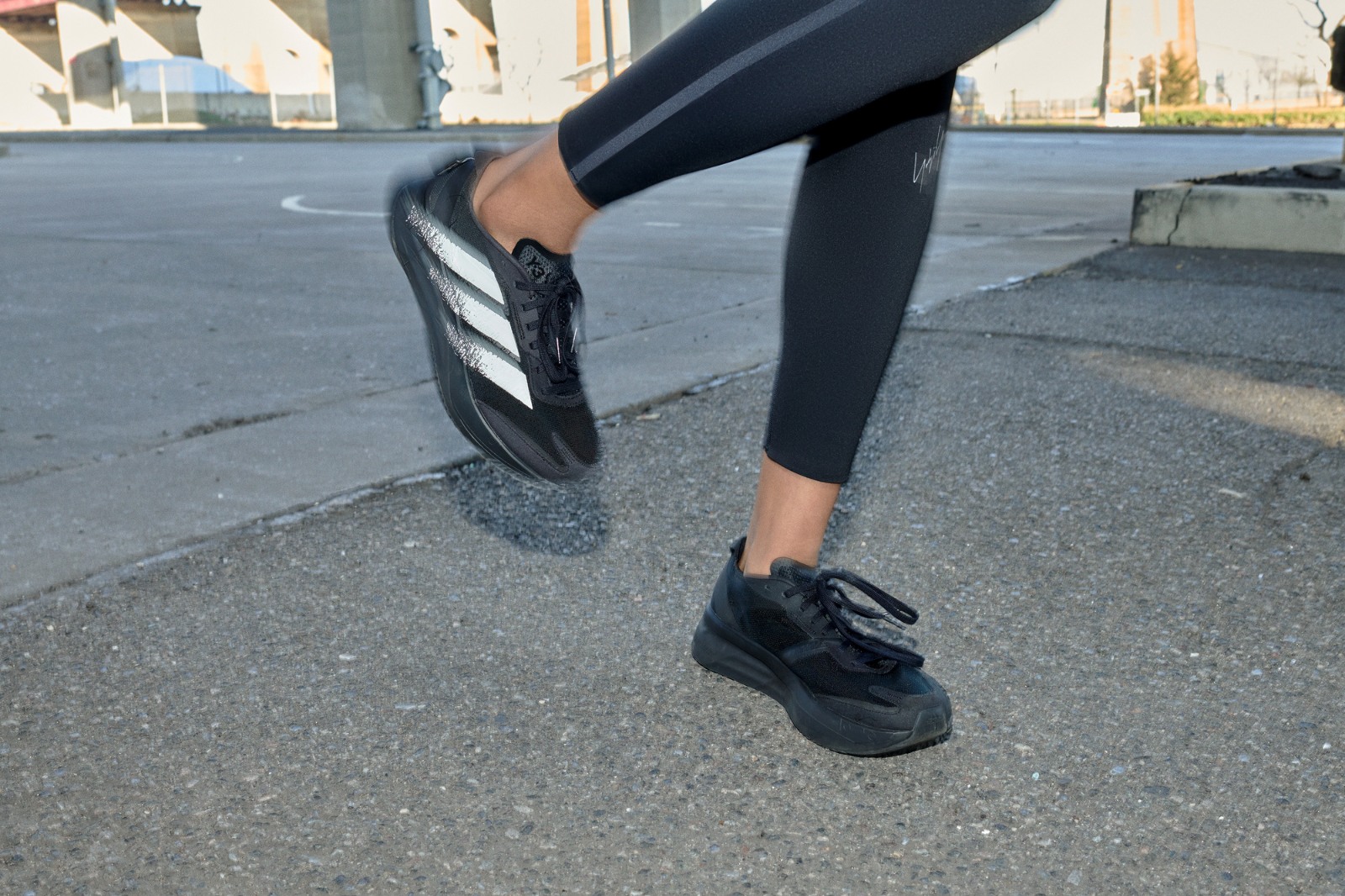
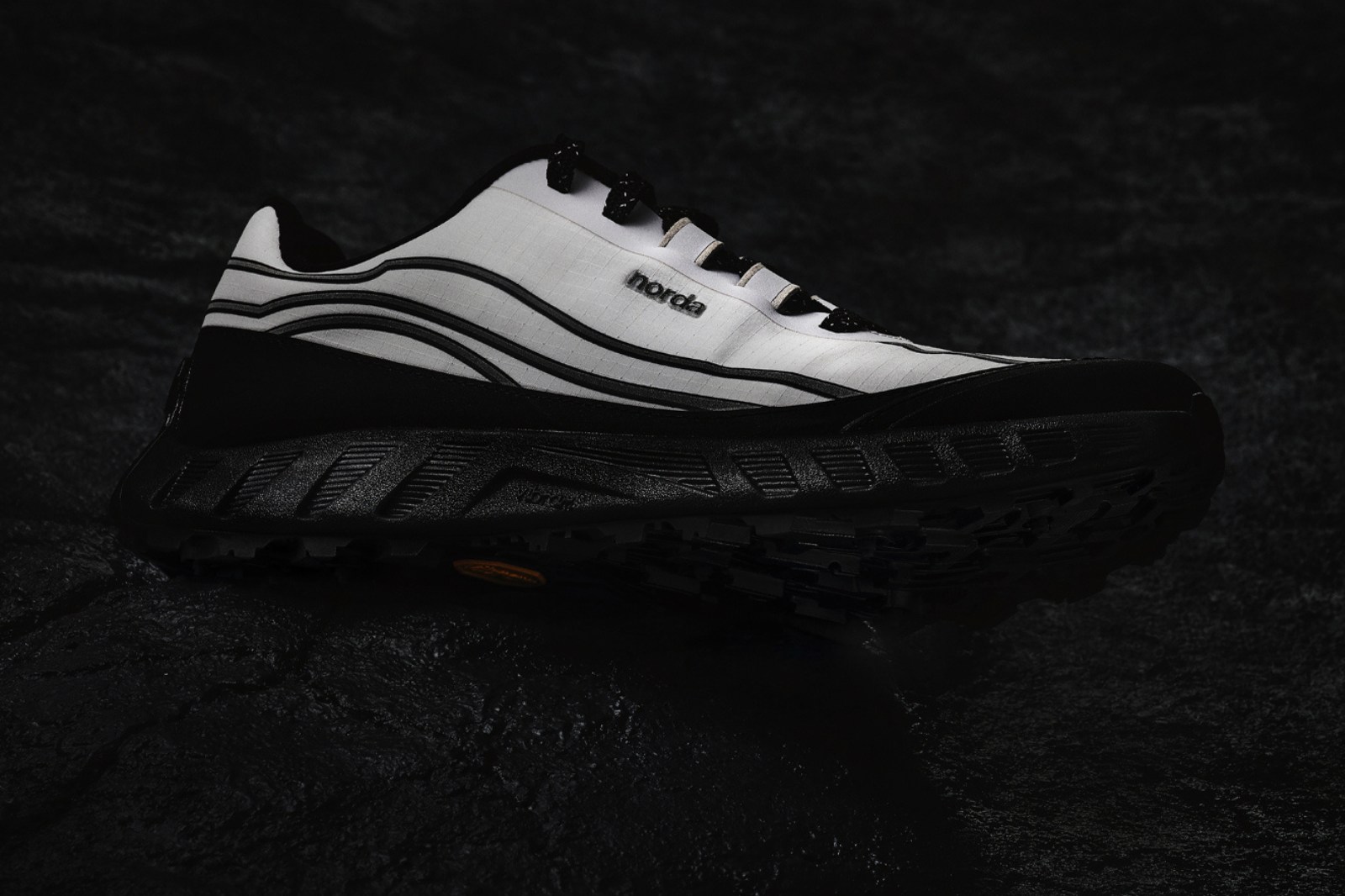
Great article! I found it referenced in Amby Burfoot’s Newsletter and will definitely be sharing it. Thanks!
Thanks Nicky!
Literally happened to me (again) Saturday. Last mile of an easy 4 mile “close-my-rings” run and developed calf pain. Didn’t stop running (of course) and even ran 6 the next day. Only mild discomfort at the beginning of that run.
So yeah, I’m definitely of the “ignore it it’s in the mind” when it comes to running injuries. But as an athletic trainer, you’d think I would know better!
Hi, I read your article and was happy to read something that made sense, and reassured me that i am not losing my mind.
I am not a ‘no pain no gain’ person, and i think there is a difference between enduring a challenge and hurting or breaking yourself.
I wonder if I could ask you for help on something:
I had a bad foot injury 2 years ago, i went to the ER directly bc my toe was broken, but 4 months later i still couldn’t run or handle any sort of pressure (walking to standing) normally.
the physician i saw told me to ‘walk through the pain’ but i feel like i’ve been destroying my foot. I’ve been to several other doctors for other opinions and found out i had a spiral fracture deforming the 5th metatarsal, ans i can see that my 5th MTP joint is out of alignment.
could you recommend any good surgeon for me that could help? Still causing agony.
i never had foot pain prior, and i run everyday and do marathons sometimes.
i want to feel like myself again, and not be in constant pain.
Wish we could help, but unfortunately cannot provide medical recommendations. Ask around in running forums or facebook groups, or with a local running group!